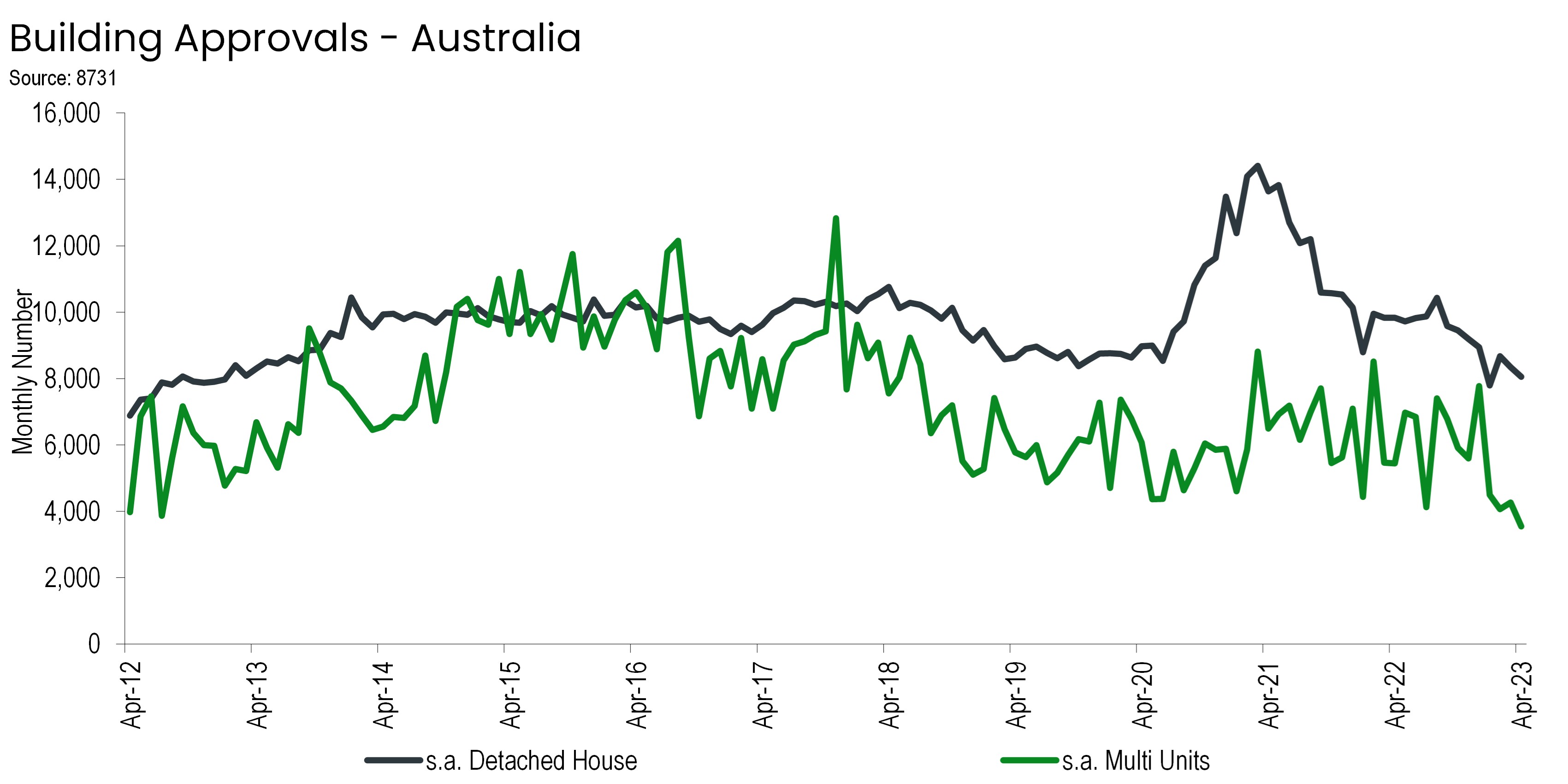Building approvals lowest since 2012 - Master Builders
CONCERNS are mounting in the building community with building approvals hitting their lowest levels since April 2012, impacting Australia’s ability to meet its housing targets, according to Master Builders Australia acting CEO, Shaun Schmitke.
“According to the ABS, new home building approvals sank by 8.1 percent over the month with a total of 11,594 dwellings approved in seasonally adjusted terms," Mr Schmitke said.
“The reverses in new home building approvals come in the aftermath of 12 months of rising interest rates and inflation at its highest in over 30 years.
“The data reflects the cautious approach being taken by developers and consumers in the face of economic uncertainty and high building costs," he said.
“The biggest drops were in higher density home building approvals and home renovations falling 16.9 percent and 26.6 percent respectively.
“Although demand for medium and high-density housing is surging, the pipeline of new stock is rapidly diminishing.
“The fall in new builds will exacerbate pressures in the rental market at the worst possible time with media reports today showing the portion of income needed to pay rent lifting to the highest level since June 2014.[1]
“Builders recognise the importance of a healthy and vibrant building and construction sector in supporting economic growth and addressing the housing needs of a growing population.
“To ensure we continue to supply enough homes to house all Australians, governments need to look at what impact their regulations and policies have on the cost of building homes and on the cost of building social infrastructure," Mr Schmitke said.
“The upcoming planning ministers meeting provides an opportunity to address these challenges."
Master Builders has published its priorities for delivering Australia’s housing needs which can be read here.
ends
Reference [1] https://www.afr.com/property/residential/worsening-affordability-hits-poorer-renters-hard-20230526-p5dbid
ends
- Created on .

 How to resolve AdBlock issue?
How to resolve AdBlock issue? 